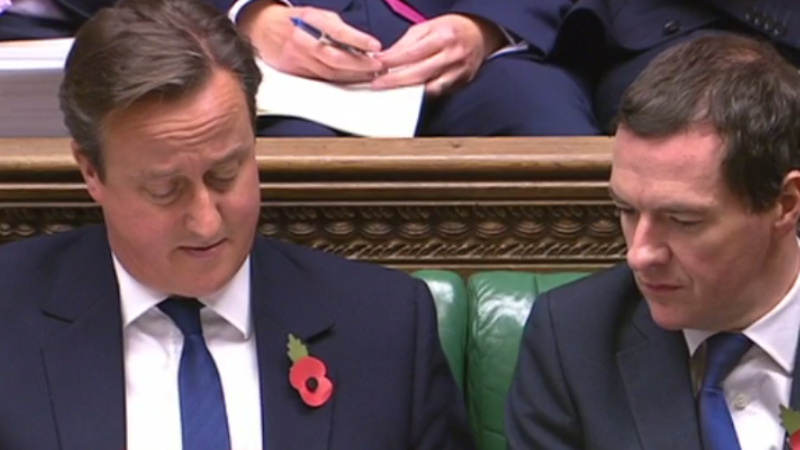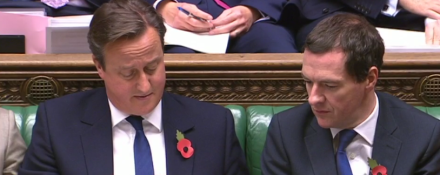

Women will be hit six times harder than men by George Osborne’s budget. A trend that began in 2010 is only getting worse: the Government is making life more difficult for women.
You wouldn’t know this depressingly gendered reality of Tory economics by listening to Conservative politicians. In fact they claim to be leading the charge against sexism, and, while they’re at it, racism. Two years ago, the then Employment Minister and former MP for Wirral West Esther McVey boasted that “record numbers of women are in work”; Nicky Morgan, minister for Women and Equalities Minister and Minister for Education (because why should someone bother giving their full attention to sexism and discrimination?) announced plans to “eradicate gender inequality”; and last year David Cameron somewhat cunningly tried to claim for the Conservatives the mantle: “the party of equality”.
Yet amid all of their economic plans and lofty rhetoric, there has been one constant: whatever choices the Tories make, women get hit the hardest. Since 2010 86% of the Treasury’s net savings, made through tax and benefit cuts, have come from women. Should we really expect anything else from a government led by a PM who thought it suitable to tell a senior Labour MP to “calm down, dear”? Probably not but it’s at odds with the image they project.
The anti-women budget comes from a barrage of policies that disproportionately disadvantage women or almost entirely cut them out of the equation. Osborne’s decision to increase the threshold at which the 40% income tax kicks in to £45,000 doesn’t just benefit higher earners; it’s particular good for men because they are the high earners. Only ¼ of the 3.2 million higher-rate taxpayers are women.
While wealthy men get a hand out, women’s opportunities are decimated. Take the impact of the Tories’ cuts package on Black and Minority Ethnic (BAME) women. Despite the mountains of research into the gendered impact of austerity, there’s little robust evidence into how BAME women are affected. But we know that Tory economics forces women and minority ethnic communities to shoulder the burden of the cuts so it’s no big leap to suggest many women of colour will be in a double bind. In fact, research in Coventry unemployment among BME women shot up by 74.4% between 2009 and 2013, for their white counterparts it rose by 30.5%. So while women as a group might be affected most by government policy, BAME women – alongside disabled women – are likely to be at the sharpest end of changes.
Add to this attack on women an all-out assault on the public sector. Privatisation continues to creep in through a back door held open by George Osborne and is likely to affect women disproportionately. Take local government, in 2013 research found twice as many women as men had lost jobs since the coalition government came to power in 2010.
Meanwhile, Osborne has for some time now quickly and indifferently brought his scythe down on charities that provide help and support for women. Though the chancellor claimed he’d fund services with money made from the tampon tax (I’ll leave you all to consider why women alone should have to foot the bill), now Cameron’s set to scrap this tariff on periods we can only assume that the funding for the charities in question will disappear too. The long-term economic plan didn’t stretch to include issues that affect women.
This economic attack on women is no new tune; it’s been going on for the past five years. A Fair Deal, a coalition of 11 women’s rights charities, warned that this would happen back in May 2015 but the newly anointed Tory government simply didn’t care. They charged ahead with the decimation of support for women that we’re witnessing. Women’s issues and equal rights for BAME people are just handy rhetorical flourish for a government that’s attempting to cover up all manner of sins.
The corporate feminism that’s centred around quotas in “top jobs” for women is a handy mask for them; signing up to a trickle down equality that doesn’t work and ignoring financial and societal barriers that so many women face on a daily basis. As Cameron professes his undying commitment to equality the reality is women are being systematically disadvantaged under his Government, and that’s not going to change any time soon.




More from LabourList
‘Turning public services around: Haringey’s story of child protection’
‘Can Labour turn the green tide back to red?’
Tom Belger column: ‘Why is Labour making migrant exploitation easier?’